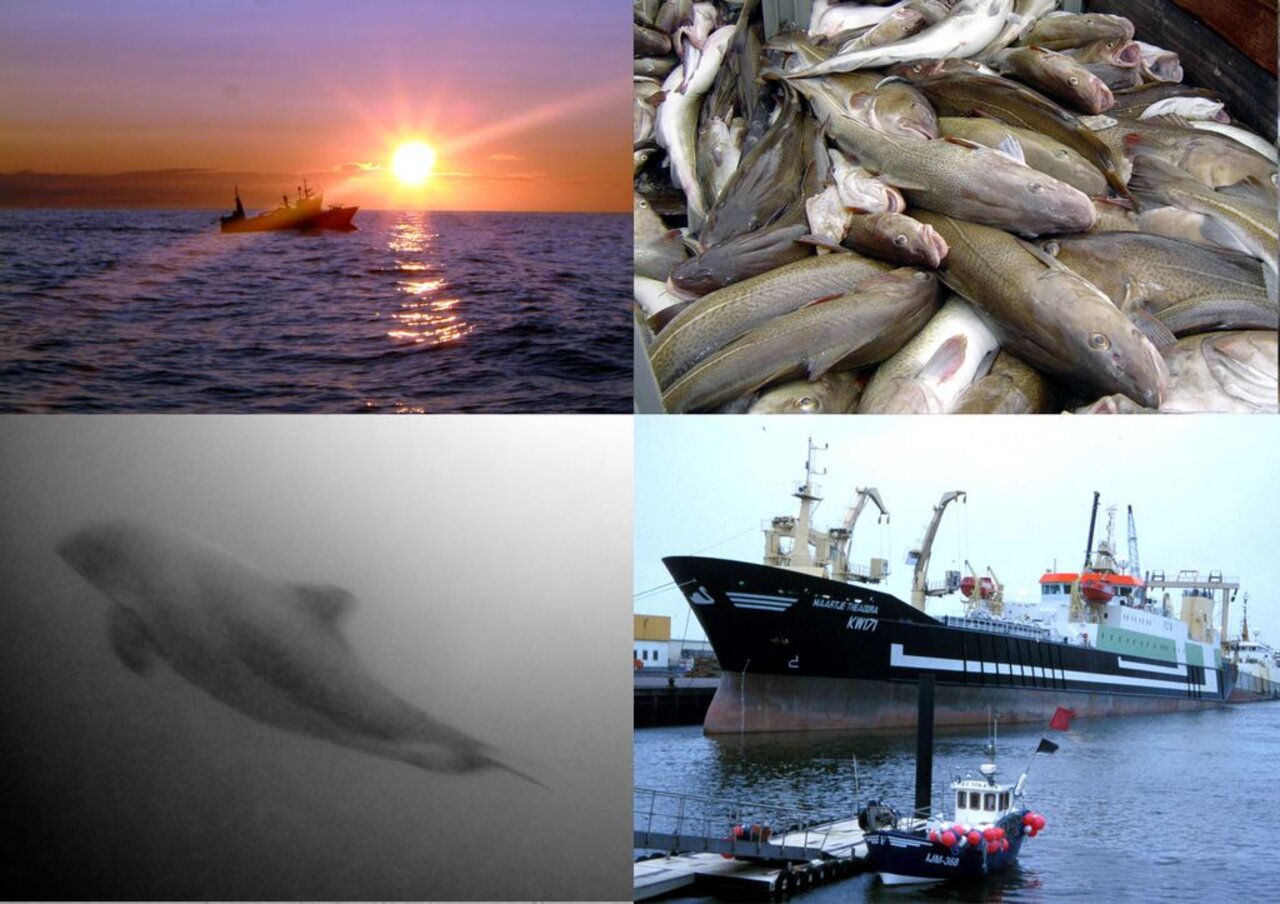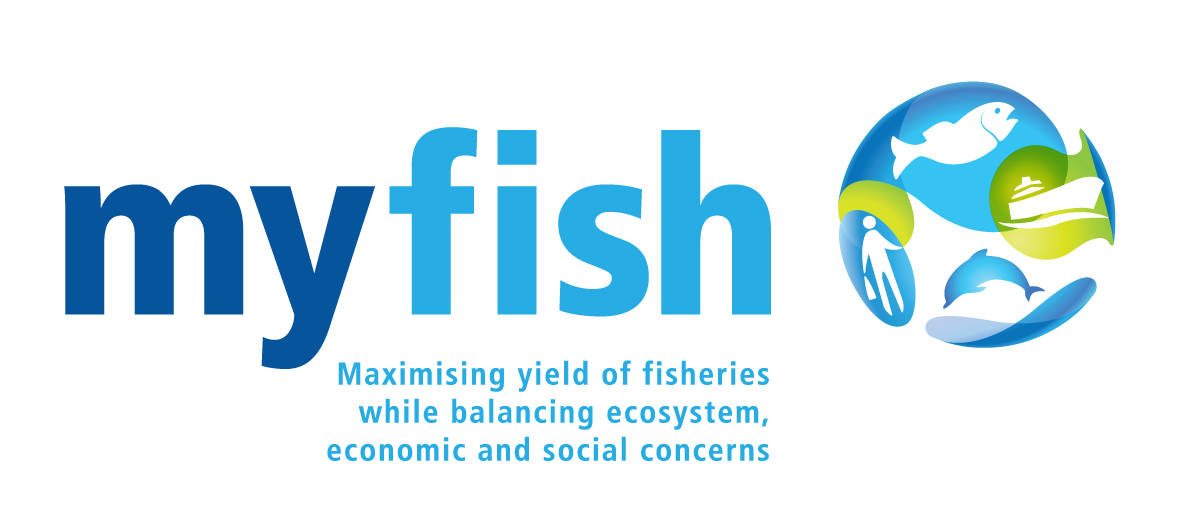Project
Maximising yield of fisheries while balancing ecosystem, economic and social concerns (MYFISH)

One main goal of the European fisheries policy is to harvest all fish stocks with a fishing mortality in accordance with the MSY concept (Fmsy) in 2015 at latest. However, because of predator-prey interactions and bycatch in mixed fisheries, Fmsy as defined in the current single species context cannot be achieved for all species simultaneously. MYFISH will define MSY in accordance with the ecosystem approach and helps to develop multi-species management plans. These plans will ensure a sustainable exploitation but also take into account economic and social aspects.
Background and Objective
One main goal of the European fisheries policy is to harvest all fish stocks with a fishing mortality in accordance with the MSY concept (Fmsy) in 2015 at latest. However, the way to reach this goal is complex, as the harvesting of one stock with Fmsy may lead to negative impacts on other stocks in the ecosystem. Increasing predator stocks lead to higher natural mortalities for prey stocks and finally to a lower yield from these prey stocks available to the fishing industry. In addition, the economy of fleets and social constraints have to be taken into account to reach a sustainable use of marine resources. MYFISH will define sustainability in the context of the ecosystem approach to ensure that "Good environmental status" can be reached as envisaged by the Marine Strategy Framework Directive (2008/56/EC) without ignoring economic and social constraints. Existing ecosystem and bio-economic models will be modified to allow for the maximisation of yield under certain constraints. Management plans will be developed with the help of various stakeholders (fishing industry, NGOs, fisheries managers) from the different regions (Advisory Councils) to implement the MSY concept inside an ecosystem approach to fisheries.
Target Group
Politicians, science, fishing industry, media
Approach
This project deals with complex bio-economic and multi-species models to identify optimal harvest strategies. There is a pronounced role of stakeholders in the project because often trade-offs have to be solved that go beyond scientific decisions.
Our Research Questions
- How can we define MSY in an ecosystem approach?
- What is the maximum sustainable yield in a multi-species envrionment?
- Which ecological, economic and social constraints have to be taken into account when maximising the yield from fisheries?
- How should multi-species managment plans for mixed fisheries look like?
Results
- Various reports (12/2013, 09/2014, 10/2015)
- Workshops with the fishing industry, NGOs and politicians to discuss results
- New concepts for multi-species management plans
Links and Downloads
Involved external Thünen-Partners
- CEFAS (Centre for Environment, Fisheries & Aquaculture Science)
(Lowestoft, Großbritannien (inkl. Nordirland)) - Danish Technical University (DTU)
(Kopenhagen, Hirtshals, Charlottenlund, Dänemark) - Christian-Albrechts-Universität zu Kiel
(Kiel, Deutschland) - Wageningen University & Research (WUR)
(Wageningen, Niederlande)
Duration
3.2012 - 2.2016
More Information
Funding program: EU – FP7 – Thematic Priority "Food, Agriculture and Fisheries, and Biotechnology"
Project status:
finished
Publications
- 0
Goti-Aralucea L, Fitzpatrick M, Döring R, Reid D, Mumford J, Rindorf A (2018) "Overarching sustainability objectives overcome incompatible directions in the Common Fisheries Policy". Mar Policy 91:49-57, DOI:10.1016/j.marpol.2018.02.006
- 1
Ulrich C, Vermard Y, Dolder PJ, Brunel T, Jardim E, Holmes SJ, Kempf A, Mortensen LO, Poos JJ, Rindorf A (2017) Achieving maximum sustainable yield in mixed fisheries: a management approach for the North Sea demersal fisheries. ICES J Mar Sci 74(2):566-575, DOI:10.1093/icesjms/fsw126
- 2
Rindorf A, Cardinale M, Shephard S, De Oliveira J, Hjörleifsson E, Kempf A, Luzenczyk A, Millar C, Miller DC, Needle CL, Simmonds J, Vinther M (2017) Fishing for MSY: using "pretty good yield" ranges without impairing recruitment. ICES J Mar Sci 74(2):525-534, DOI:10.1093/icesjms/fsw111
- 3
Rindorf A, Mumford J, Baranowski P, Worsoe Clausen L, Garcia D, Hintzen NT, Kempf A, Leach A, Levontin P, Mace P, Mackinson S, Maravelias CD, Prellezo R, Quetglas A, Tserpes G, Reid DG (2017) Moving beyond the MSY concept to reflect multidimensional fisheries management objectives. Mar Policy 85:33-41, DOI:10.1016/j.marpol.2017.08.012
- 4
Stäbler M, Kempf A, Mackinson S, Poos JJ, Garcia C, Temming A (2016) Combining efforts to make maximum sustainable yields and good environmental status match in a food-web model of the southern North Sea. Ecol Model 331:17-30, DOI:10.1016/j.ecolmodel.2016.01.020
- 5
Cormon X, Kempf A, Vermard Y, Vinther M, Marchal P (2016) Emergence of a new predator in the North Sea: evaluation of potential trophic impacts focused on hake, saithe, and Norway pout. ICES J Mar Sci 73(5):1370-1381, DOI:10.1093/icesjms/fsw050
- 6
Kempf A, Mumford J, Levontin P, Leach A, Hoff A, Hamon KG, Bartelings H, Vinther M, Stäbler M, Poos JJ, Smout S, Frost H, Burg S van den, Ulrich C, Rindorf A (2016) The MSY concept in a multi-objective fisheries environment - lessons from the North Sea. Mar Policy 69:146-158, DOI:10.1016/j.marpol.2016.04.012

![[Translate to English:] [Translate to English:]](/media/_processed_/7/1/csm_IMG_7977_large_1defaf5de1.jpg)






